
Restorer of the World 5 Things You Didn’t Know About Aurelian, Rome’s
Beyond the walls. They were a symptom of the imminent demise of the world's greatest superpower, and the hurry with which they were built was indicative of the urgency of the situation. Between 271 and 275 CE a circuit of fortifications 18 km (12 miles) long was built. These would remain the defences of the city of Rome (with additions and.

The Aurelian Walls in Rome the Longest Circuit of City Walls in the
The Porta Nigra of Trier, Germany, capital of the Roman province of Gallia Belgica, constructed between 186 and 200 AD. Diocletianopolis city walls, Hisarya, Bulgaria Notable walls built by ancient Rome include, in chronological order of construction: Murus Romuli, built around early Rome in remote antiquity
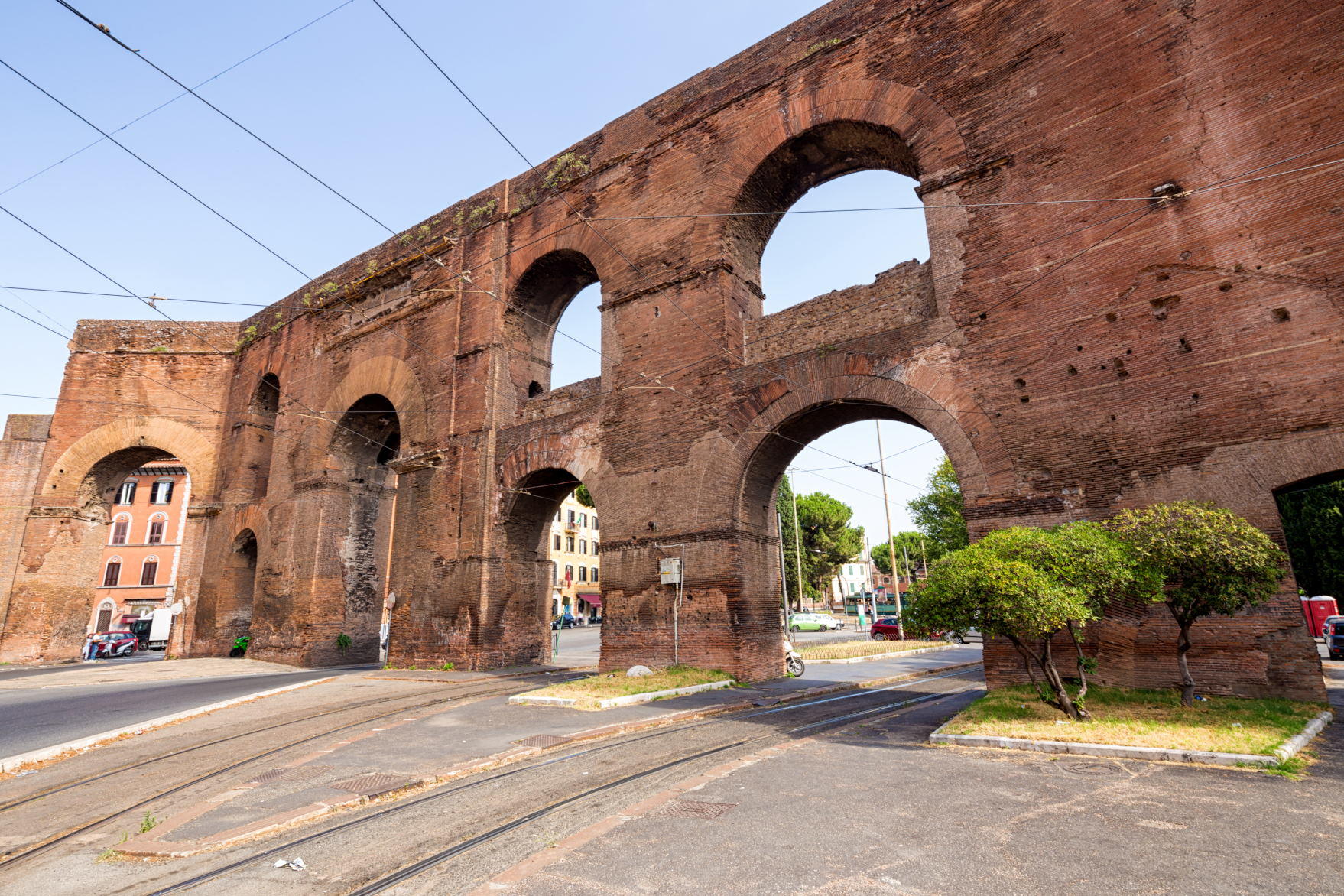
Aurelian Walls Colosseum Rome Tickets
The Aurelian Walls ( Italian: Mura aureliane) are a line of city walls built between 271 AD and 275 AD in Rome, Italy, during the reign of the Roman Emperor Aurelian. They superseded the earlier Servian Wall built during the 4th century BC.
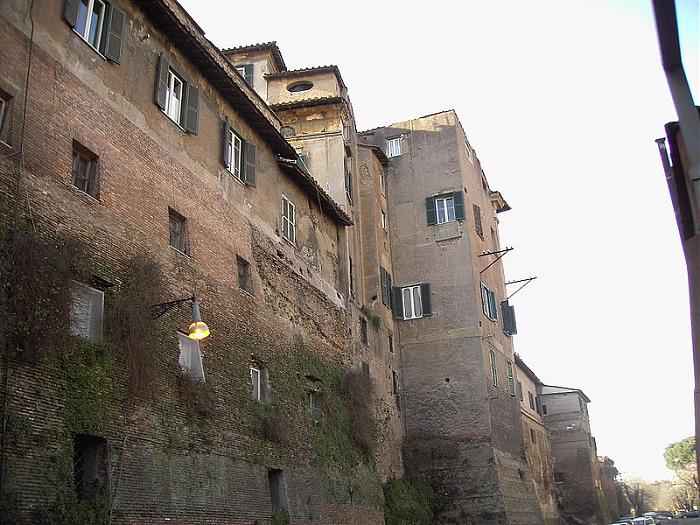
Walled perimeter of Rome in the IV century A.D. (Aurelian Walls) Rome
The Aurelian Walls still surround the historic centre of Rome and are among the longest and best preserved ancient walls in the world.. They were built between 270 and 275 century AD. at the behest of Emperor Aurelian, to defend the capital from the threat of invasions by the Germanic populations who were pressing on the borders of the Empire; the new city walls replaced the ancient Servian.
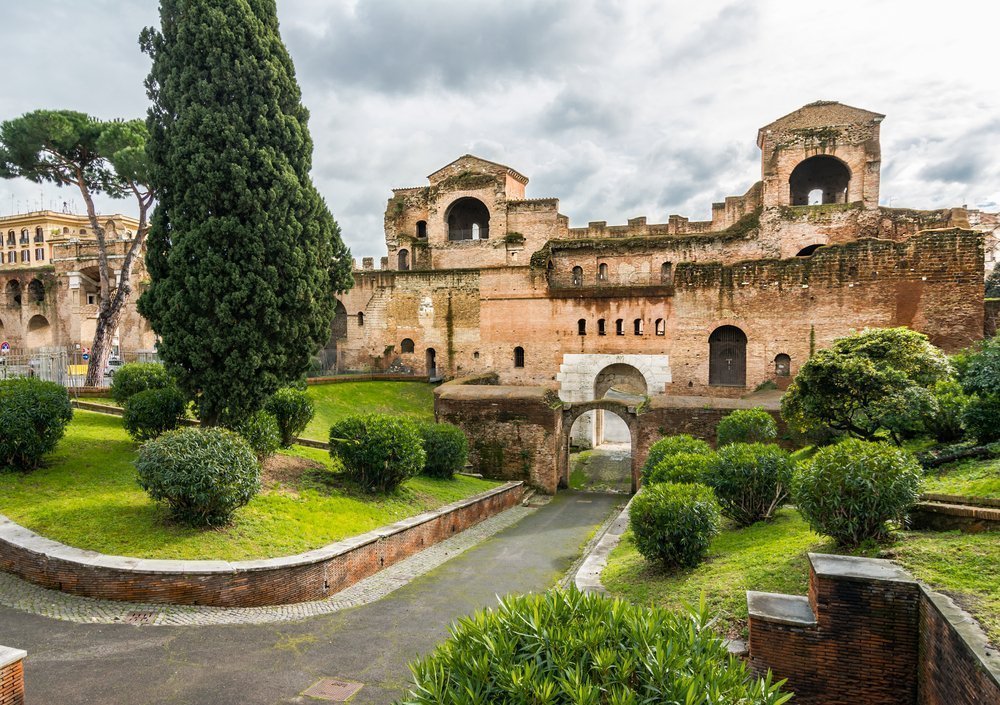
The Ancient Walls of Rome
The Aurelian Walls (Le Mura Aureliane) in Rome were built in the third century A.D. and are about 19 kilometers long. Works began by Emperor Aurelian during a time of insecurity throughout Italy and the empire. Fortification walls were restored several times in antiquity but are still well-preserved.
CHill on a Mission Cruising around Rome
The World Heritage property encompasses the whole historic centre of Rome within the city walls at their widest extent in the 17th century, as well as the Basilica of St. Paul's Outside the Walls. The property, complex and stratified, includes outstanding archaeological areas integrated in the urban fabric, which result in a highly.
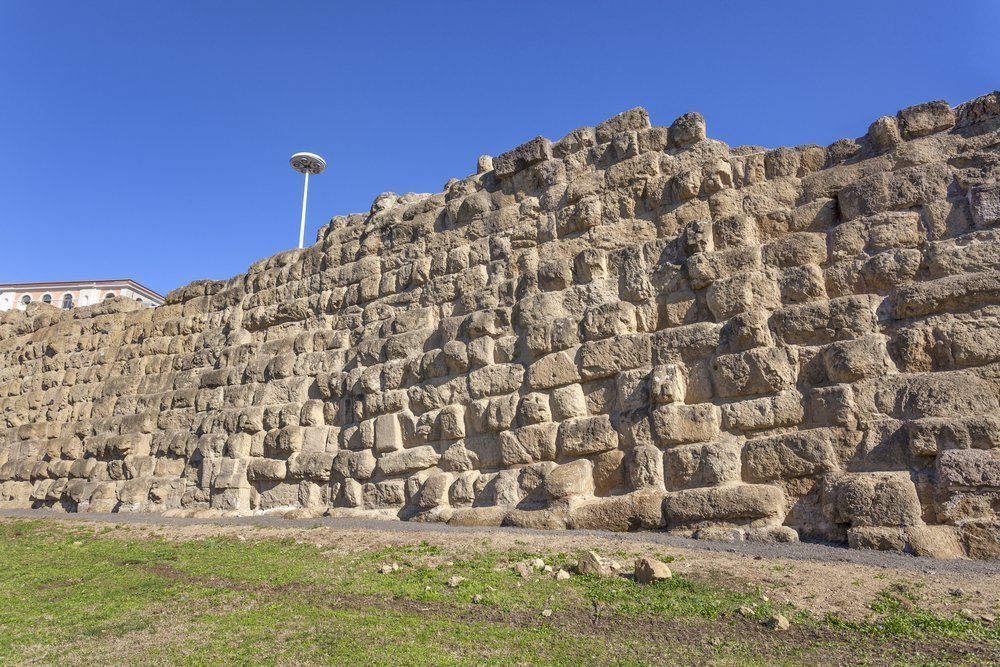
The Ancient Walls of Rome
The wall circuits of Rome ( recinto) can be thought of as roughly concentric in nature, emanating out from the city's pre-historic core at, or near, the ancient Roman Forum.

Rome’s City Walls Its History and Significance
By Aaron Spray Published Apr 4, 2023 The Aurelian Walls were the impressive walls hurriedly built to keep the Eternal City safe and they mostly still stand today. Shutterstock The Aurelian walls along the avenue of Porta Ardeatina Quick Links The History Of The Walls Of Home: How The Aurelian Walls Signaled The Changing Fortunes Of Rome

Roman Walls, Rome
Article by Victor Labate published on 31 August 2016 Listen to this article The many Roman walls still visible today throughout Europe and the Mediterranean, be they defensive walls such as the Servian Wall or house and monument walls, tell us a great deal about the evolution of Roman construction techniques.
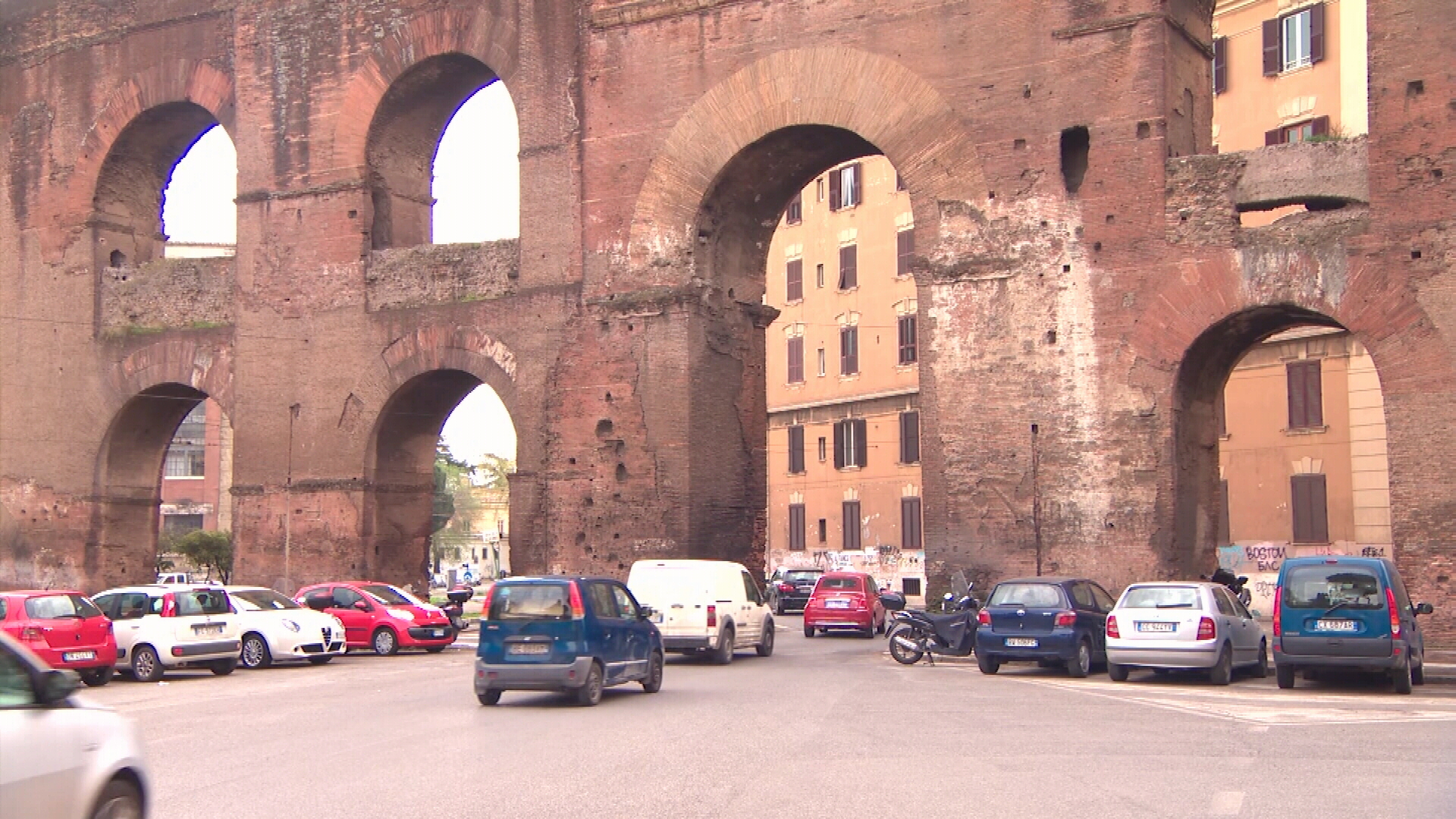
Ancient Roman walls at risk of being lost forever due to neglect
There Was An Earlier Wall In Rome . The older wall of Rome was the Servian Wall that had been built in the 4th century BC during the early Roman Republic. Rome had long outgrown these old walls.

Holidays in Rome the history of the Eternal City told by its millenary
The Romans developed brick making techniques that became the main building material in the 1st century AD for the walls of houses, Roman baths, and monuments. Opus latericium (Latin for "brickwork.

A Brief History of Rome's City Walls
The origins of the city walls can be traced all the way back to the 4th century BC, when the 6th king of Rome, Servius Tullius constructed the first defenses. The Servian walls were built from large blocks of volcanic tufa and were documented as being up to 10 meters high.

A Brief History of Rome's City Walls
The Servian Wall (Latin: Murus Servii Tullii; Italian: Mura Serviane) is an ancient Roman defensive barrier constructed around the city of Rome in the early 4th century BC. The wall was built of volcanic tuff and was up to 10 m (33 ft) in height in places, 3.6 m (12 ft) wide at its base, 11 km (6.8 mi) long, and is believed to have had 16 main gates, of which only one or two have survived, and.

The Aurelian Wall Rome's largest ancient monument, or "one thing too
The Walls of Rome The Servian Walls If you're arriving to Rome's 1930's Termini Train Station, look to the right as you walk out the front of the station into the Piazza dei Cinquecento, the square named for the 500 Italian soldiers who were wiped out by 7,000 Ethiopians at the Battle of Dogali (Eritrea) in 1887.

St. Paul Outside the Walls, Rome Rome italy, Rome, Italy travel
Here's my guide to the Aurelian Walls in Rome. They're one of the biggest, but most neglected, ruins from Ancient Rome. The Aurelian Walls date from the 3rd century. They were 12 miles long and 26 feet high, with 14 gates and 380 watch towers. The Aurelian Walls take their name from Emperor Aurelian, a warrior emperor who sought to protect.
Rome the Second Time The Vatican Walls Where Fascism Meets
Aurelian Wall, rampart of imperial Rome, first constructed in the second half of the 3rd century ad. It was begun by the emperor Aurelian, completed by his successor Probus, improved under the emperor Honorius in the early 5th century, and restored by Theodoric the Great in the 6th century and by